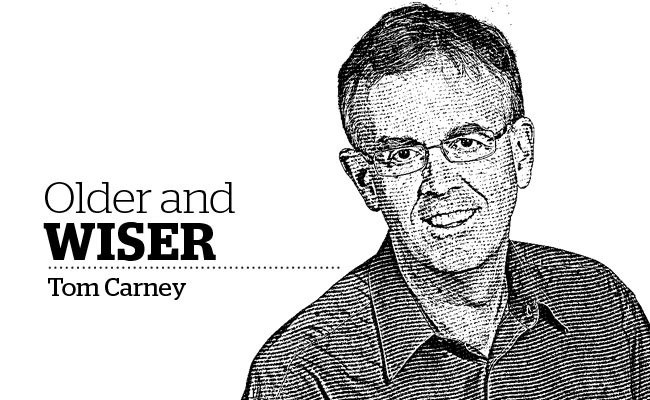Travel, they say, broadens the mind.
I suppose it depends on whose mind we're talking about, but I'd tend to agree. My wife and I spent some time in Europe last month. We travelled from London to Budapest with stops in Paris, Zermatt, Lausanne, Salzburg, Vienna and Munich in between. Many of those cities are light years ahead of us in dealing with traffic congestion and housing options for seniors. There are lessons to be learned there.
You don't have to travel abroad to learn something new. Years ago I worked at a children's rehabilitation centre in Vancouver and part of my job was to tour groups through the facility. After doing a few thousand tours there weren't a lot of questions that I hadn't heard before, or so I thought.
One day, a group of rehabilitation specialists arrived from Japan. They were here for Expo '86 and only the tour guide spoke English. We started the tour at the kitchen. Typical questions here would be "did many of the patients have special diets?" (yes) or "did they have a choice of when or what they ate?" (no).
These guys wanted to know the unit cost per meal. The what? I told them I'd get back to them on that one. Next stop the laundry room. The tour leader explained that in Japan they had privatized laundry services in most hospitals and care facilities. Twenty years later we did too.
Next up, the medical records department. We were using pen and paper for our patient record keeping system. In Japan medical records were kept on CDs. Mini CDs, actually, and they were about to move to an electronic health records system now known as eHealth. Now remember, this was almost 30 years ago. Where are we with eHealth in B.C.
today? We've freed ourselves from a contract with IBM at a cost to taxpayers of at least $150,000 in legal fees and $40,000 in mediator costs. That's in addition to the $72 million paid to IBM for a system, several systems actually, that don't work, are not compatible or upgradable and probably can't be fixed.
Still, that's chump change when you consider the cost for the eHealth initiative is estimated to be $842 million. McKinsey and Co., in a separate review, found that those responsible for the eHealth project in Vancouver had an insufficient understanding about how to deliver a megaproject on time and on budget. Cerner Corporation, the government's new partner on the eHealth project, had bookings of $1.29 billion in the second quarter of 2015, an all-time high. I expect they will do even better next year.
The rest of my tour with the group from Japan didn't go much better. It was painful but I learned a lot that day. Our trip to Europe was a lot more fun. Many of the European nations are in a severe economic downturn. What they have in abundance is what the French call joie de vivre, or the joy of living. Whether it be sharing a bottle of wine at a sidewalk cafe in Paris, hiking in Switzerland or filling the concert halls in Salzburg, Europeans know how to enjoy life.
Too bad, I thought to myself as our trip neared an end, that we couldn't bottle some of that up and bring it back home.



